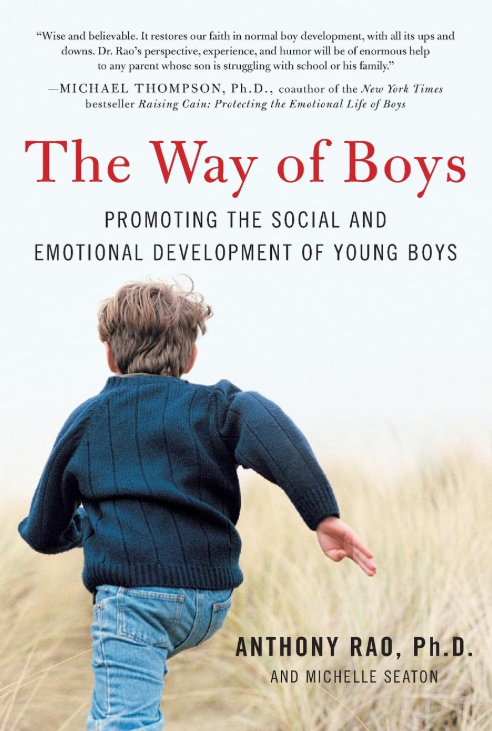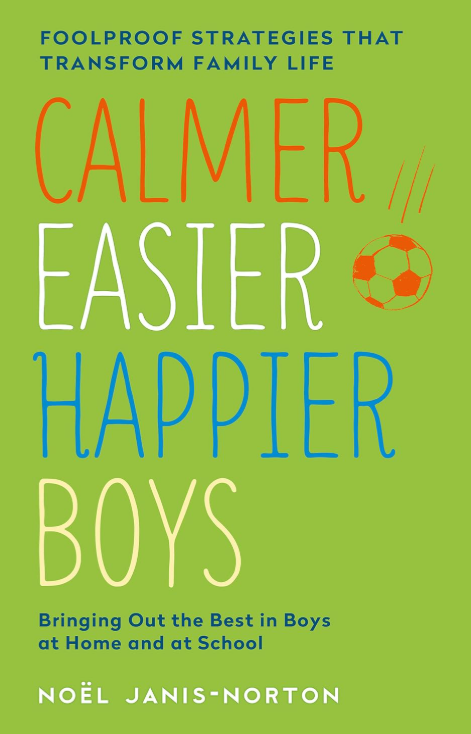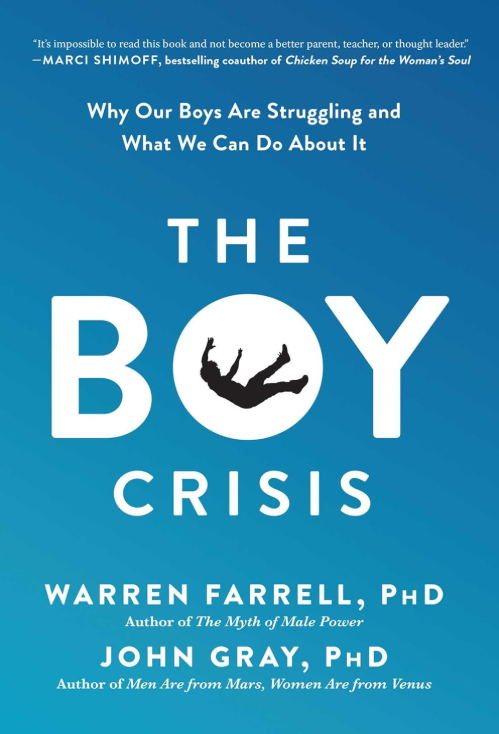Navigating the journey of parenting boys presents unique challenges that require both wisdom and practical strategies for raising them well. Research from the American Psychological Association suggests that fathers play a particularly crucial role in their sons’ development, influencing everything from emotional regulation to future relationship patterns. The right parenting book can serve as your compass, offering evidence-based insights and time-tested approaches for raising confident, compassionate young men. Whether you’re struggling with behavioral issues, seeking to strengthen your father-son bond, or preparing for the teenage years ahead, selecting quality literature on parenting boys can transform your approach to raising them. Studies indicate that engaged fathers who actively seek parenting resources report higher confidence levels and stronger relationships with their children. This commitment to active parenting is key to a flourishing family and successful raising.
Top Reads for Dads Guiding Boys 📚
The foundation of effective parenting lies in understanding your son’s unique developmental needs while building the relationship that will carry you both through challenging times of parenting and raising a boy.
Build Strong Bonds

Creating lasting connections with boys requires intentional effort and understanding of how they naturally communicate and express affection. “The 5 Love Languages of Children” by Gary Chapman provides fathers with practical frameworks for connecting with sons who may show love differently than expected. This aspect of parenting fosters genuine connection in raising a boy.
Strong father-son relationships typically develop through shared experiences rather than lengthy conversations. Boys often process emotions through physical activity, making sports, outdoor adventures, or hands-on projects powerful bonding opportunities. This highlights the impact of engaged parenting in raising a boy. Consider implementing regular one-on-one time that aligns with your son’s interests. This dedicated time creates space for natural conversations and demonstrates your investment in his world. Many successful fathers report that their most meaningful conversations with sons happen during car rides, walks, or while working on projects together, all part of intentional parenting and raising a well-adjusted boy.
Navigate Boyhood Challenges

Boys face distinct developmental challenges that require specialized understanding and approaches for raising them. The period between ages 8-14 presents particular difficulties as boys begin asserting independence while still needing guidance and structure. Effective parenting during this phase is critical for raising a boy. Common challenges include emotional outbursts, risk-taking behaviors, and difficulty expressing feelings verbally. “Raising Boys” by Steve Biddulph addresses these typical boyhood struggles with practical solutions rooted in child development research. The book emphasizes that boys’ brains develop differently, with emotional processing centers maturing later than in girls. This insight is crucial for parenting and raising boys.
Physical aggression often serves as boys’ primary method of working through frustration or testing boundaries. Understanding this natural tendency helps fathers respond with appropriate guidance rather than punishment alone. Effective strategies include providing physical outlets for energy, teaching emotional vocabulary, and modeling calm responses to stress, all fundamental to good parenting and raising boys.
Instill Core Values

Character development in boys requires consistent modeling and clear expectations. Values are best transmitted through daily interactions and real-life examples rather than lectures or formal teaching moments, a cornerstone of values-based parenting when raising men. Boys learn integrity by watching how fathers handle difficult situations, treat others, and respond to their own mistakes. “The Way of Boys” by Anthony Rao emphasizes that boys need to see masculinity demonstrated through kindness, responsibility, and respect for others. This forms the basis of ethical parenting and raising strong men.
Key values to focus on include:
- Personal responsibility for actions and consequences
- Respect for women, children, and those different from themselves
- Courage to stand up for others and do what’s right
- Work ethic and the satisfaction of earning achievements
- Emotional intelligence and healthy expression of feelings
Essential Guides for Father-Son Journeys 🛤️
Raising a Modern Day Knight

Robert Lewis’s “Raising a Modern Day Knight” presents a compelling framework for guiding boys toward authentic manhood. The book outlines three ceremonies corresponding to different developmental stages, providing fathers with concrete milestones and meaningful traditions. This is a powerful model for intentional parenting and raising responsible men.
This approach recognizes that boys need clear markers of growing maturity and increased responsibility. Lewis emphasizes the importance of vision – helping sons see their potential and understand their role in the larger story of family and community. The ceremonial elements create lasting memories while reinforcing important life lessons, supporting purposeful parenting and raising a future man. The book addresses modern challenges like technology addiction and lack of male role models while providing practical solutions. Many fathers report that implementing these concepts strengthened their relationships with sons and provided clear direction for character development conversations, demonstrating effective parenting outcomes in raising boys.
Wild at Heart

John Eldredge’s “Wild at Heart” explores the masculine soul and helps fathers understand their sons’ need for adventure, challenge, and purpose. While controversial in some circles, the book offers valuable insights into boys’ natural drive for risk-taking and exploration. This perspective enhances parenting approaches for raising men.
Eldredge argues that boys possess an inherent wildness that should be channeled rather than suppressed. This perspective helps fathers appreciate their sons’ energy and provide appropriate outlets for adventure-seeking behaviors. The book emphasizes the importance of fathers offering both challenge and affirmation, key elements of supportive parenting when raising boys. Critics note that the book may oversimplify gender differences, but many fathers find value in its call to engage more actively in their sons’ lives. The central message – that boys need fathers who understand and celebrate their masculine energy – resonates with many parenting experts. This makes it a significant contribution to parenting literature for raising men.
Power of Showing Up

Daniel Siegel and Tina Payne Bryson’s “The Power of Showing Up” emphasizes the critical importance of consistent presence in children’s lives. For fathers raising boys, this means being emotionally available and responsive, not just physically present. This is a cornerstone of responsive parenting.
The authors identify four S’s of secure attachment: Safe, Seen, Soothed, and Secure. Boys who experience these elements consistently develop stronger emotional regulation and healthier relationships throughout life. “Showing up” for boys often looks different than for girls. It may involve being present during sporting events, listening without immediately offering solutions, or simply being available when boys are ready to talk. The book provides practical strategies for busy fathers to maximize their emotional availability, enhancing their parenting presence and supporting their efforts in raising their sons.
Practical Strategies for Raising Boys 🔧
Decoding Boys

Cara Natterson’s “Decoding Boys” offers a pediatrician’s perspective on understanding boys’ physical and emotional development. The book addresses common misconceptions about boys while providing evidence-based insights into their behavior patterns. This book is invaluable for parenting and raising boys effectively.
Natterson explains how hormonal changes affect boys’ moods, energy levels, and decision-making abilities. This scientific understanding helps fathers respond more effectively to challenging behaviors. For example, recognizing that teenage boys’ prefrontal cortex isn’t fully developed until their mid-twenties explains many seemingly irrational decisions. These insights inform effective parenting and raising strategies. The book also addresses contemporary issues like social media pressure, academic stress, and changing social expectations for boys. Natterson emphasizes that successful parenting requires adapting strategies to match each child’s unique temperament and developmental timeline. This highlights personalized parenting in raising each unique boy.
Calmer, Easier, Happier Boys

Noël Janis-Norton’s approach focuses on positive parenting strategies specifically designed for boys’ learning styles and behavioral patterns. The book emphasizes preparation, praise, and reflective listening as core tools for reducing conflict and improving cooperation. This book offers practical parenting guidance for raising boys.
Boys often respond better to clear expectations and consistent routines than to lengthy explanations or emotional appeals. Janis-Norton provides specific scripts and techniques for common parenting challenges like homework battles, chore completion, and sibling conflicts. This makes parenting simpler and more effective for raising a boy. The “preparation” strategy involves discussing expectations before problems arise, helping boys understand what’s expected and why. This proactive approach reduces power struggles and helps boys develop internal motivation rather than relying solely on external consequences, a key to harmonious parenting and raising well-behaved boys.
Nurturing Emotional Intelligence in Sons 💝
Raising an Emotionally Intelligent Child

John Gottman’s research-based approach to emotional intelligence provides fathers with concrete tools for helping boys understand and manage their feelings. Boys often struggle with emotional expression due to social expectations and developmental differences. This is a vital area of parenting and crucial for raising emotionally healthy men.
Gottman identifies five steps of emotion coaching:
- Recognizing emotions in yourself and your child
- Seeing emotions as teaching opportunities
- Listening empathetically and validating feelings
- Helping your child label emotions
- Setting limits while problem-solving
For boys, this process often requires patience as they may take longer to identify and articulate feelings. The book emphasizes that all emotions are acceptable, but not all behaviors are appropriate responses to those emotions. These are crucial insights for parenting and raising resilient men. Boys who receive emotion coaching demonstrate better academic performance, stronger friendships, and fewer behavioral problems. These skills become particularly crucial during adolescence when peer pressure and identity formation create additional emotional challenges, making this parenting approach indispensable for raising strong boys.
Nonviolent Communication

Marshall Rosenberg’s communication framework helps fathers model and teach respectful dialogue. Boys often learn communication patterns from observing their fathers, making this skill development crucial for future relationships. This is a valuable tool in parenting and raising articulate men.
The four-step process involves:
- Objective observation without evaluation
- Expressing feelings without blame
- Identifying underlying needs
- Making specific requests rather than demands
This approach helps boys learn to express frustration and anger constructively rather than through aggressive behavior or withdrawal. Many fathers report that implementing these techniques improved their own relationships while teaching valuable life skills to their sons, benefiting their parenting journey and raising effective communicators.
The Boy Crisis

Warren Farrell and John Gray examine societal factors contributing to boys’ struggles in modern culture. The book addresses declining academic performance, increased mental health challenges, and lack of positive male role models affecting many boys today. This highlights a critical challenge in parenting and raising men.
Statistical evidence presented includes concerning trends:
- Boys are four times more likely to be diagnosed with ADHD
- Male suicide rates have increased significantly in recent decades
- Boys lag behind girls in reading and writing skills across most grade levels
- College enrollment among men has declined steadily
The authors argue that boys need more male teachers, fathers, and mentors actively involved in their lives. They emphasize the importance of physical activity, competitive opportunities, and clear expectations for helping boys thrive in contemporary society. These are crucial aspects of supportive parenting and successful raising of men.
Foundational Wisdom for Fathers 🏛️
The Exemplary Husband

Stuart Scott’s book addresses the critical connection between a father’s marriage and his effectiveness in parenting sons. Boys learn about relationships, respect, and responsibility primarily through observing their parents’ interactions. This directly impacts their parenting effectiveness and the entire process of raising a boy.
The book emphasizes that sons develop their understanding of masculinity largely through watching their fathers treat their mothers. Research from the Ohio State University indicates that boys from stable, loving homes show better emotional regulation and social skills throughout their lives. This underscores the importance of a strong parentship for effective parenting and raising well-adjusted men. Scott provides biblical principles for husbands while addressing practical issues like conflict resolution, communication patterns, and emotional leadership within the family. The connection between marital health and parenting effectiveness cannot be overstated when raising boys who will become future husbands and fathers themselves, making healthy parenting a generational gift for men.
Man’s Search for Meaning

Viktor Frankl’s profound work offers fathers deep insights into finding purpose and meaning, qualities essential for guiding sons through life’s inevitable challenges. Boys need to see their fathers demonstrate resilience and purpose, particularly during difficult circumstances. This book offers profound parenting wisdom for raising men.
Frankl’s experiences in Nazi concentration camps led to his understanding that humans can endure almost any suffering if they can find meaning in it. This principle applies directly to parenting challenges and helps fathers maintain perspective during difficult seasons with their sons. It enriches the parenting journey and helps in raising resilient boys. The book’s central message – that we cannot always choose our circumstances, but we can choose our response – provides a powerful framework for teaching boys about personal responsibility and resilience. Many fathers report that reading this book helped them model better responses to stress and adversity for their sons, improving their parenting approach and the overall experience of raising a boy.
The Bible

Regardless of specific religious beliefs, the Bible contains timeless wisdom about character development, relationships, and moral guidance that has influenced Western civilization for millennia. Many parenting principles found in contemporary books have roots in biblical teachings about child-rearing. This is a foundational text for parenting and raising ethical men.
The book of Proverbs offers practical wisdom about discipline, character development, and the long-term results of different choices. These ancient insights often align with modern child development research about consistency, natural consequences, and the importance of teaching rather than merely punishing. These insights are key for effective parenting and raising responsible boys. Biblical figures like David, Solomon, and Jesus provide examples of mentorship, wisdom, and male leadership that can inform fathers’ approaches to raising sons. The emphasis on character development, service to others, and moral courage remains relevant for contemporary parenting challenges. This makes it a timeless guide for parenting and raising men.


